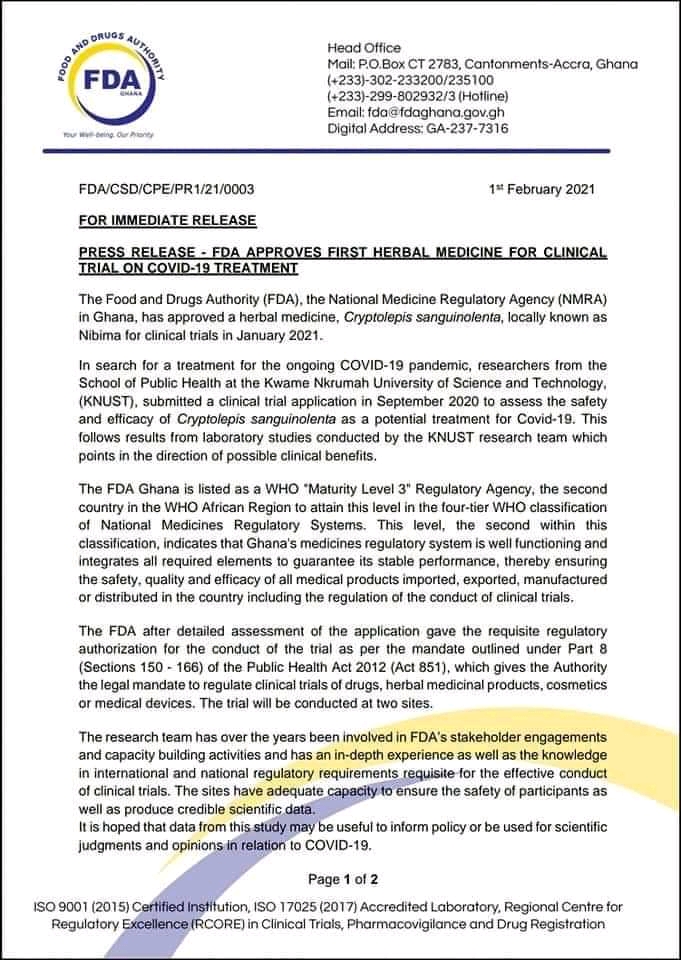Researchers from the School of Public Health at the Kwame Nkrumah University of Science and Technology have received approval to commence clinical trials of a potential treatment for COVID-19.
The approval which was granted by Ghana’s Food and Drugs Authority (FDA) and the National Medicine Regulatory Agency (NMRA) is for the herb Cryptolepis sanguinolenta, known locally as Nibima, Kadze and Gangamau.
The FDA in a press release said the approval follows “results from laboratory studies conducted by the KNUST research team which points in the direction of possible clinical benefits”.
“The Food and Drugs Authority (FDA), the National Medicine Regulatory Agency (NMRA) in Ghana, has approved a herbal medicine, Cryptolepis sanguinolenta, locally known as Nibima for clinical trials in January 2021,” the release said.
“In search for a treatment for the ongoing COVID-19 pandemic researchers from the School of Public Health at the Kwame Nkrumah University of Science and Technology (KNUST), submitted a clinical trial application in September 2020 to assess the safety and efficacy of Cryptolepis sanguinolenta as a potential treatment for Covid-19. This follows results from laboratory studies conducted by the KNUST research team which points in the direction of possible clinical benefits”.

Nibima is already used locally as a herbal treatment for Malaria.
Clinical trials
Clinical trials involve the test of potential treatments in human volunteers to see whether they should be approved for wider use in the general population.
The potential treatments, however, must be studied in laboratory animals first to determine potential toxicity before they can be tried in people. Treatments having acceptable safety profiles and showing the most promise are then moved into clinical trials.
The FDA statement said the KNUST application received approval after a detailed assessment and the Nibima trial will be conducted on two sites.
It also assured that the sites have the capacity to ensure the safety of participants as well as produce credible scientific data.





